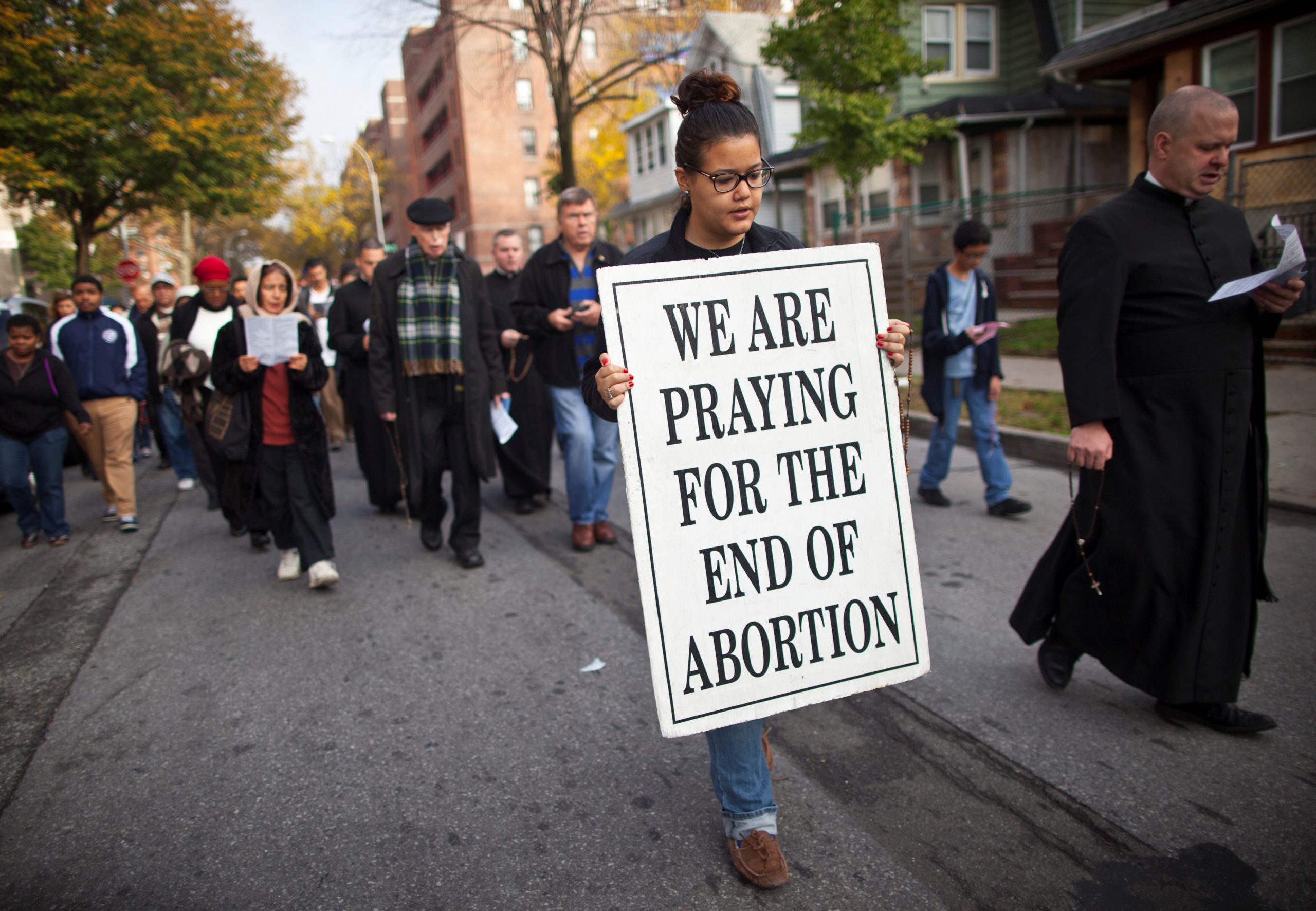A divided federal appeals court on Wednesday ruled against anti-abortion protesters who have tried to discourage women from entering a reproductive health clinic in the New York City borough of Queens.
Ruling in favor of New York Attorney General Letitia James, the 2nd U.S. Circuit Court of Appeals rejected claims by the 13 protesters that a federal law and a similar state law protecting abortion providers and patients from attacks and threats of force violated their constitutional free speech rights.
In a 116-page decision, Circuit Judge Rosemary Pooler said the federal law was designed to be broad, “given the health risks women needing reproductive care face because of the increased stress, anxiety, and agitation” from misconduct by protesters.
The 2-1 majority also said New York faced irreparable harm absent an injunction against the Saturday morning protests at the Choices Women’s Medical Center in Jamaica because the protests, which began in 2012, could recur.
Chief Judge Debra Ann Livingston dissented, accusing the majority of effectively transforming the laws governing access to clinics into “‘buffer zone’ equivalents,” threatening to suppress the protesters’ legitimate First Amendment rights.
The court returned the case to U.S. District Judge Carol Bagley Amon in Brooklyn, who in July 2018 rejected the state’s request for an injunction against the protests.
Wednesday’s decision comes as many states and anti-abortion activists push to curb abortion access, hoping a conservative Supreme Court majority will weaken or overturn Roe v. Wade, the 1973 decision establishing abortion as a constitutional right.
The lawsuit had been brought in 2017 by Eric Schneiderman, then New York’s attorney general. He said protesters crowded women trying to enter the Choices clinic, made death threats to people trying to escort them, and blocked their path with posters purportedly of aborted fetuses.
Martin Cannon, a lawyer for the protesters, expects them to appeal, saying the majority “fails to respect fundamental First Amendment rights on a public sidewalk.”
James, the attorney general, said the majority recognized that the law entitles people to access abortion clinics “without obstruction and harassment.”
The case is New York v Griepp et al, 2nd U.S. Circuit Court of Appeals, Nos. 18-2454, 18-2623, 18-2627 and 18-2630.
(Reporting by Jonathan Stempel in New York; Editing by David Gregorio and Leslie Adler)
























